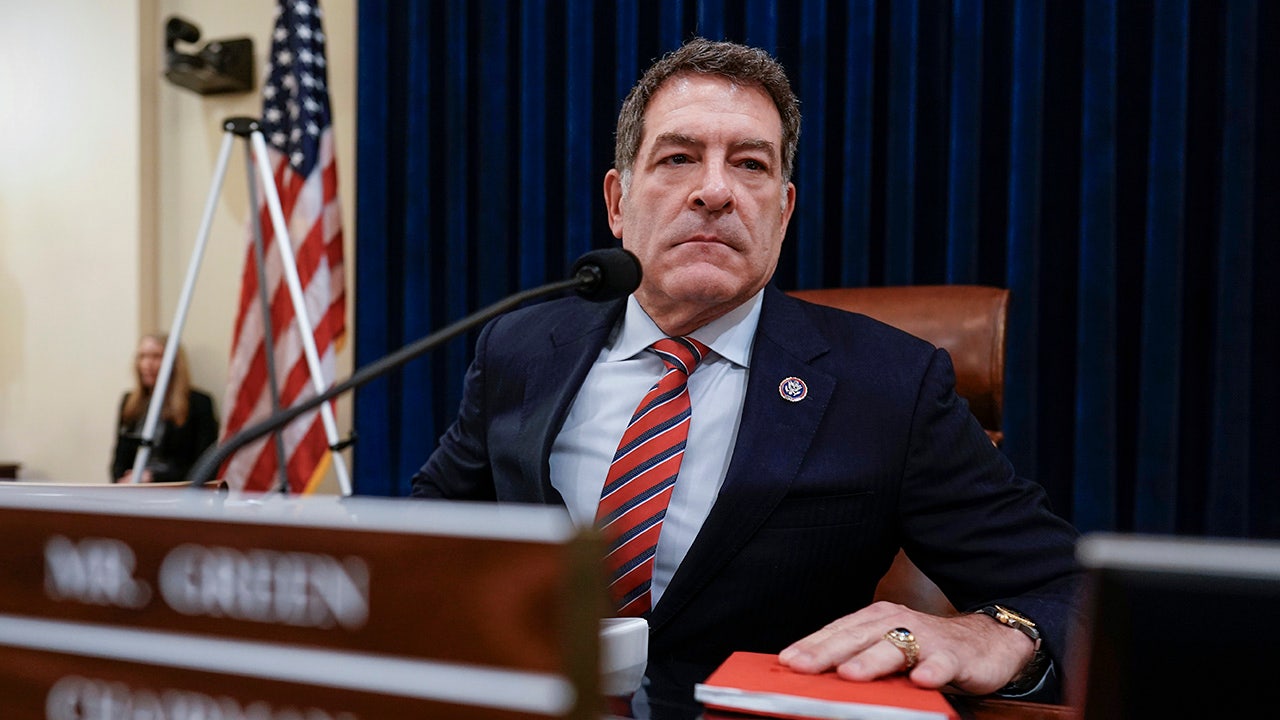Augusta, GA
I-TEAM: Digging deeper into Burke County sheriff’s spending allegations
/cloudfront-us-east-1.images.arcpublishing.com/gray/BZ6BO5VEOJHS3DOJRCDB2CNKWU.png)
AUGUSTA, Ga. (WRDW/WAGT) – For months, the Georgia Bureau of Investigation’s preliminary inquiry into Burke County Sheriff Alfonzo Williams’ travel expenses has continued.
News 12 first raised questions about Williams’ credit card spending two years ago. Now, the I-TEAM is digging deeper and found the sheriff seemingly broke Georgia law.
This all started well before the I-TEAM obtained copies of an audit completed more than a year ago.
- First report
- Second report
The money in question was used to pay for his expenses and travel, which county commissioners say wasn’t his to spend. We’re talking about hundreds of thousands of dollars that came from taxpayers, and not just those in Burke County.
In the summer of 2021, the Burke County Sheriff’s Office was going back and forth with county commissioners. The sheriff wanted control over his budget.
The sheriff told his command staff in a Facebook post that he gained full control of their budget and finances.
But, the I-TEAM requested documents from that meeting. The minutes tell us nothing was agreed upon. “Chairman Kelly stated they would take the matter under advisement, and no action was taken.”
Later that month, on August 19, 2021, Williams received a $50,000 grant from the Waynesboro Housing Authority. The money was to be used to “provide certified law enforcement officers and deputies to cover security at public housing areas.”
According to the audit, the county was never told about the grant. It should have been disclosed because the $50,000 is considered public money, according to the audit.
The guide for Georgia counties says the county commission approves a budget for the sheriff’s office. If the sheriff’s office gets a grant after the budget is approved – the budget is amended to add in grant money. The county audit says that never happened.
MORE FROM NEWS 12:
What did happen 11 days later, according to IRS records, Williams went to the IRS to apply for an EIN or an employer identification number.
According to the IRS website, an EIN is a tax identification number for businesses.
Williams tells the federal government he is a separate entity from the county, even using the county’s name in the application. This allows Williams to collect taxes on behalf of his employees.
The next month, Williams opens a bank account with the $50,000 grant and opens a line of credit, including a county credit card at First National Bank.
Williams states in the audit he does this “In anticipation of handling the funds,” he says are already his.
This goes against the Georgia code.
According to O.C.G.A 36-80-24, “an elected official of a county shall be prohibited from the use of a government purchasing card or a government credit card unless: Purchases are in accordance with guidelines adopted by the county.”
Williams is supposed to fill out a credit card agreement form that sets guidelines and purchasing procedures. The commission says that was never done and the sheriff never notified the county he opened an account and credit card or about the $50,000 grant.
The very next month, Williams receives a $375,000 Georgia Power Company grant. That grant is to increase traffic enforcement in and around Plant Vogtle.
According to the audit, the county wasn’t notified about that grant either. Instead, the sheriff put $375,000 into his unauthorized bank account.
But in November, the sheriff files this mandamus or lawsuit against the county demanding full control of his budget, despite acting as if he already has control of it. County commissioners agree to give the sheriff control, but only over the number of deputies he hires and what he pays them.
It wasn’t until April of 2022 that the county found out about the sheriff’s unauthorized bank account, unauthorized county credit card, the $425,000 in grants, and an account that was still open and being used by the sheriff three months after a judge ruled against him.
While commissioners felt they were being kept in the dark, an independent accounting firm was shedding light on the sheriff’s spending spree. More than $40,000 went to pay off his unauthorized credit card.
Expenses included meals, hotel stays, and travel to meetings where the sheriff was paid to speak to the organization with or on behalf of the “Leaders Helping Leaders Network.”
According to the audit and pictures from social media, Williams traveled out of state at least ten times in six months going to places like Tennessee, Arkansas, Massachusetts, and Florida.
The sheriff confirms in the audit he did get paid to attend those events while using that unauthorized county credit card and grant money to cover some of his expenses. We reached out to Leaders Helping Leaders about his pay and if he’s reimbursed.
In an email, the company tells the I-TEAM, “We are currently cooperating with the GBI investigator. As a private company, we do not disclose our contractual information to the media.”
After the I-TEAM reached out to the Leader Helping Leaders Network, Williams was taken off the staff list of the website.
Bank statements the I-TEAM obtained show the sheriff also spent more than $200,000 of grant money for events to boost his popularity. That included a turkey giveaway, a toy drive, and paychecks for summer interns, including his daughter.
On July 14, 2022, the sheriff was ordered by the commission to turn over the remaining amount in that unauthorized bank account. The sheriff wrote a check to the commission for $217,914.16, zeroing out the account.
In this timeline – between the moment the county was ruled the fiscal agent by Judge Stone to the time the sheriff turned over the account it had been nearly six months.
According to bank statements during that time frame, the sheriff continued to use the unauthorized bank account and credit card.
The I-TEAM requested several interviews with Burke County Commissioners about the sheriff’s spending habits. We have not heard back yet.
Copyright 2023 WRDW/WAGT. All rights reserved.

Augusta, GA
SENTENCED: Augusta killer who left dead mom’s body with kids

An Augusta man has been sentenced to life in prison plus 75 years for killing his new girlfriend last year and leaving her body in their home with her young daughters.
Davante Parks, 27, was convicted Thursday in the fatal shooting 27-year-old Laquana Lang at her home on 515 Hines Street. The Augusta District Attorney’s Office secured the victory after a jury returned a verdict of guilty on all counts after less than an hour of deliberation. Senior Superior Court Judge Daniel Craig handed down the sentence.
The parolee killed the victim last September while her daughters, ages 5 and 2, were upstairs. The residence is located within the Allen Homes subdivision. The children were reportedly left alone with their mother’s body for at least four hours and had to walk through her blood and crawl over her body to get help from a neighbor.
When officers arrived, they found a gruesome scene, including child-sized footprints in the blood. Parks had been dropped off at the house around 3:30 a.m. that Saturday, and the 5-year-old daughter told officers she heard her “stepdad” arguing with her mom. Authorities were notified hours later.
Parks was wanted and surrendered the next day. He was indicted for malice murder, felony murder, two counts of cruelty to children and multiple weapons possession.
Parks and Lang had started their relationship last summer, just days after Parks was paroled following an eight-year sentence for a previous shooting.

His parole conditions required him to live with his mother, find employment, avoid street gangs, pay $30 a month to a victim’s compensation fund and stay away from his previous shooting victim.
Parks was 18 years old in 2016 when he shot a woman repeatedly in Richmond County. The incident began when Parks’ friend, Marion Terry, sought revenge on Brittanie McKie, whom he suspected of setting him up after a robbery, according to previous reporting. Terry and Parks shot McKie, who survived despite being hit five times. A subsequent confrontation with Bilal Givens and another suspect led to more gunfire, resulting in Terry’s death.
Parks pleaded guilty before Superior Court Judge Sheryl B. Jolly. She sentenced him to 12 years of confinement and 13 years of probation, but he only served eight in prison before being paroled on July 16, 2024, according to court records.
Making matters worse, McKie told WRDW-TV that she was not notified about the release of the man who tried to kill her. She said nobody contacted her.
Augusta, GA
‘It makes you feel more comfortable in your own skin’: Augusta holds Pride Parade

AUGUSTA, Ga. (WRDW/WAGT) – Augusta held its annual Pride Parade Saturday morning with hundreds of people showing up to support and celebrate the LGBTQ+ community.
One attendee said it’s essential to celebrate the inclusion of such communities because it helps people accept themselves for who they are.
“Having representation and seeing people who are like you, it makes you feel more comfortable in your own skin. A lot of people are struggling just knowing themselves and being able to accept themselves, so being in a community and having people who know you or are just like you really helps you accept yourself a little bit more,” said Symphony Hines, celebrating Pride.
Another person who attended the parade said he’s there to show as much support as he can.
“If you’re there for them, even if you’re not gay yourself, it can mean a lot to some people. That’s why I’m here, even if I’m not involved with a lot of the LGBTQ community, I’d like to show support in any way that I can,” said Albert Becerril.
Churches also attended the parade.
Saint John Methodist Church gave out stickers and showed their support for the community.

A member of the church says they have a motto of love, welcoming everyone.
“We just want people to know they’re loved, just like they are. She has it perfectly on her shirt that says ‘God made you perfect,’” said Laurie Easterlin.
The Augusta Pride Festival doesn’t end until midnight on Saturday, so you still have time to go if you missed the parade.
Copyright 2025 WRDW/WAGT. All rights reserved.
Augusta, GA
Augusta city leaders discuss downtown parking project changes

AUGUSTA, Ga. (WRDW/WAGT) – Augusta leaders discussed adding changes to the TIA Projects that spread across downtown on Thursday.
John Ussery of the Traffic Engineering Division presented a plan that would add a night shift for construction workers downtown. Right now, they only work a day shift.
Ussery said this could potentially shave a year off of the completion date, which is currently sometime in 2028, but would add $13 million to the project cost.
Commissioners did not decide on the change on Thursday, moving the item to July 8.
Director of Engineering Hameed Malik recommended moving forward with the plan.
The project is already causing headaches for business owners as traffic cones and equipment have piled up.
“If you go down to 13th Street, beyond 13th, down to St. Sebastian, all the way to 15th, how long has that been tore up,” said Marty Koger, owner of Tip Top Taps. “Is that the way it’s going to look up here too?”
“They don’t realize how much they are affecting people who live and walk down here, how much they’re affecting our lives, our income, our living,” said Michelle Tiedeman, Halo Salon and Spa Master cosmetologist.

Koger disagrees with moving parking to different streets.
“If you ask me what they should be doing is moving the traffic to Greene and to Reynolds. Use Greene to go east and Reynolds to go west. That will take a tremendous burden off the traffic here on Broad Street, and then you can make it a pedestrian-friendly culture, which is what we need,” said Koger.
Tiedeman thinks the city doesn’t realize how they are affecting people with the project.
“It seems small for them, but it’s big for us,” said Tiedeman.
Copyright 2025 WRDW/WAGT. All rights reserved.
-

 Health1 week ago
Health1 week agoHeart attack deaths have plummeted in US, but new cardiovascular threats emerge
-

 Politics1 week ago
Politics1 week agoTrump admin secures pledge from 75% of health insurers in bid to improve patient care
-

 World1 week ago
World1 week agoVietnam ends death penalty for crimes against the state, bribery, drugs
-

 Lifestyle1 week ago
Lifestyle1 week ago6 new books out this week, including true stories of trailblazers
-

 Politics1 week ago
Politics1 week agoTrump slams Bibi over ceasefire violations, denounces cable channels over skepticism
-

 News1 week ago
News1 week agoEarly intel assessment says Iran's nuclear program was only set back 'a few months'
-

 Politics1 week ago
Politics1 week agoWhite House drops 'Daddy's Home' meme after viral NATO summit moment
-

 Health1 week ago
Health1 week agoLizzo Reveals the Diet Change That Helped Her Lose Weight Without Ozempic














